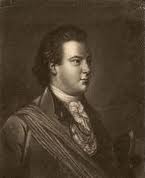Annotation:Lord Albemarle's Delight: Difference between revisions
(Created page with "=='''Back to [[{{BASEPAGENAME}}]]'''== ---- <p><font face="garamond, serif" size="4"> '''LORD ALBEMARLE'S DELIGHT.''' English, Reel and Country Dance Tunes (cut time). D Mixol...") |
No edit summary |
||
| Line 14: | Line 14: | ||
</font></p> | </font></p> | ||
<p><font face="garamond, serif" size="4"> | <p><font face="garamond, serif" size="4"> | ||
''Printed sources'': Johnson ('''Collection of the Newest and Best Reels or Country Dances'''), 1750; p. 32. | ''Printed sources'': Johnson ('''Collection of the Newest and Best Reels or Country Dances'''), 1750; p. 32. Preston ('''Preston's Twenty Four Country Dances for the Year 1803'''), 1803. | ||
<br> | <br> | ||
<br> | <br> | ||
Revision as of 03:10, 1 April 2017
Back to Lord Albemarle's Delight
LORD ALBEMARLE'S DELIGHT. English, Reel and Country Dance Tunes (cut time). D Mixolydian. Standard tuning (fiddle). AABB. John Glen (1891) finds the earliest appearance of this tune in print in Neil Stewart's 1761 Collection of the Newest and Best Reels or Country Dances (p. 32), although it had been printed earlier by London publisher John Johnson in his Choice Collection of 200 Favourite Country Dances, vol. 5 (1750). Lord Albermarle was George Keppel [1], 3rd Earl of Albemarle (1724–1772).

Keppel was a soldier descended a family who had come to England with William of Orange. His star rose through his association with the Duke of Cumberland (George III's brother), and fought with him at Culloden. Albermarle carried the dispatch of Cumberland's success to London. Eventually Keppel achieved the rank of lieutenant-general, and was in command in the Caribbean at the time of his most outstanding military success when he captured Havana and west Cuba in 1762 during the Seven Years War. It was a grueling and difficult siege, in which Yellow Fever plagued his army. Keppel held various military and administrative positions, and accumulated honors such as Knight of the Garter and being sworn into the Privy Council.
Source for notated version:
Printed sources: Johnson (Collection of the Newest and Best Reels or Country Dances), 1750; p. 32. Preston (Preston's Twenty Four Country Dances for the Year 1803), 1803.
Recorded sources:
